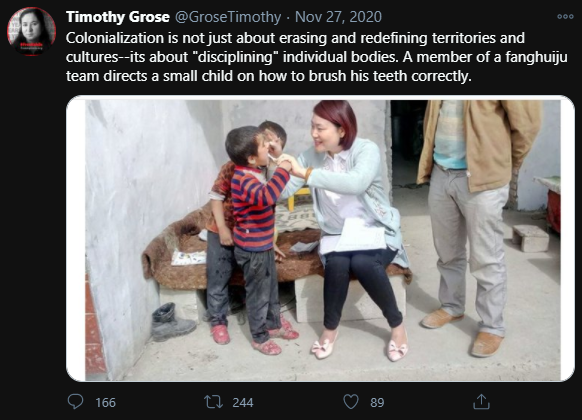
Adding a few other notes here: these economies are *short* volatility. If your welfare/security depends on China/US getting along enough not to fight but being far enough apart to privilege your companies in the global value chain, then your country is a glass menagerie
https://twitter.com/TheDailyMao/status/1353774679559868417
You need the international environment to sit in a permanent Goldilocks zone to make the whole strategy work. This is why the US/UK strategy of soft containment / D-10 is ultimately self-limiting. It shifts the environment out of the Goldilocks zone
Abstracting away from the contest of nations to the contest of ideologies, if you are someone who wants to do Marxism instead of just tweeting about it, you should figure out how to make Marxism better than liberalism at providing the intl environment for welfare/security
From this perspective, the US's position as the largest net debtor means it - unlike the other industrial economies - is actually *long* volatility, and the US's role as champion of liberalism means liberalism, today, is long volatility - or pro-chaos.
This is the opposite of what the US - and liberalism - was from 1949 to 1989. If you're a smart revolutionary you'll find a way to make these trends work in your favor, to harness them, channel them, and operationalize them into something that achieves lasting impact.
/end
/end
• • •
Missing some Tweet in this thread? You can try to
force a refresh


















